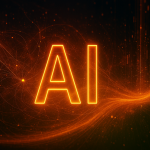In a remarkable stride towards futuristic computational technologies, the integration of quantum computing with artificial intelligence (AI) is set to boost processing capabilities significantly. Quantum computing employs the principles of quantum mechanics to perform calculations at unprecedented speeds and with higher precision. This enhancement is anticipated to revolutionize various industries by enabling AI to process and analyze vast datasets swiftly and more efficiently.
Company and Technological Advancements
Quantum computing companies are at the forefront of this technological evolution. For instance, Pasqal, a company specializing in quantum computing technology, collaborates with Welinq, a firm focused on quantum networking. This partnership aims to integrate multiple quantum processors, enhancing the scalability and reliability of quantum computing operations and paving the way for advanced AI applications in fields such as medicine and finance.
The synergy between quantum computing and AI has not only theoretical implications but practical applications are being developed which could soon be part of everyday technology solutions. Companies are increasingly exploring ways to combine AI with quantum computing to develop solutions that were previously unimaginable due to the limitations of classical computing systems.
Historical and Future Perspectives
Comparatively, the recent developments mark a significant leap from earlier stages where the practical applications of quantum computing were merely a theoretical possibility. Over time, advancements in quantum technologies have been steadily progressing, with current applications in AI showing promising results in trials, particularly in data-heavy sectors like satellite imagery and complex system optimization.
Experts anticipate that within the next few years, as quantum computing becomes more commercially viable, its integration with AI will lead to substantial improvements in computational speed, efficiency, and the handling of large-scale data problems. This progression suggests a future where quantum AI could be routinely used to solve complex issues that are currently challenging or impossible for classical computers.
Practical Implications and Insights
- Quantum computing could significantly reduce the time required for AI to process large datasets.
- Enhanced AI algorithms, powered by quantum computing, could lead to breakthroughs in drug discovery and financial modeling.
- The integration of these technologies holds the potential to drastically cut costs and increase efficiency in various sectors.
The integration of quantum computing with AI stands as a beacon of technological advancement with the potential to address some of the most pressing challenges in various sectors. As this technology continues to evolve, it could lead to the creation of more efficient, accurate, and cost-effective solutions across multiple industries. The ongoing developments and experiments are crucial for understanding the full scope of benefits and overcoming the existing technological barriers.
Ultimately, the continued exploration and investment into quantum AI technologies will likely usher in a new era of innovation, with profound implications for data analysis, system optimization, and problem-solving capabilities. As researchers and companies push the boundaries of what’s possible, the future of quantum AI looks both promising and transformative.










